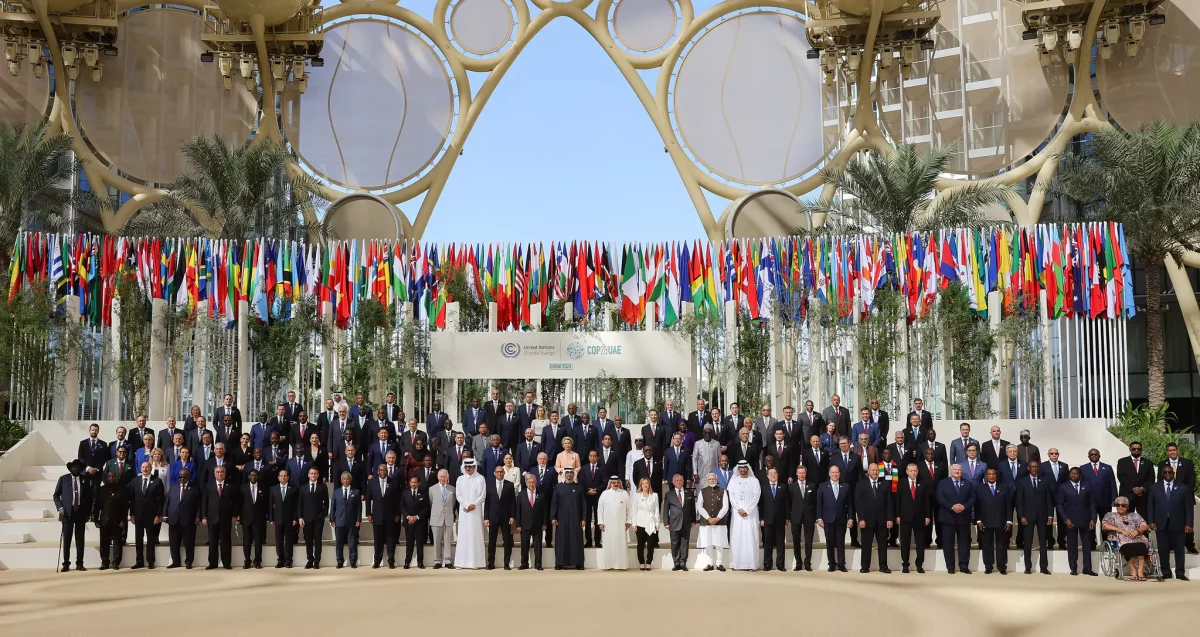Those pushing for a “phasing out” of fossil fuels will have to settle for the “transitioning away” of the final COP28 deal, which was agreed by desperate diplomacy in the hours after the climate summit had officially ended.
The COP28 deal was delivered on the morning of Wednesday 13th December, a day after the landmark climate summit in Dubai had come to an official close.
Behind the scenes, work had continued into the early hours and COP28 President Sultan Al Jaber reportedly held a series of intense one-on-one meetings with Heads of State as well as larger group sessions as he pressed for agreement on a revised text from the nearly 200 nations that had attended the summit.
On Monday 11th December, an initial draft that pledged “reducing both consumption and production of fossil fuels, in a just, orderly and equitable manner, so as to achieve net zero by, before or around 2050, in keeping with the science” had been met with outroar.
The principal objections were the lack of commitment in wording and the clear loopholes, with some going as far as to call it “grossly insufficient” and “incoherent”.
The second draft, which was finally agreed two days later, has, however, been hailed as a “landmark” deal. That isn’t to say that there isn’t criticism – some voices from developing nations and island states have dubbed the new text as “unfair and “inequitable” – but the coverage of its contents has been largely positive.
“Transitioning away” from fossil fuels
More than 130 countries reportedly petitioned for an explicit promise to “phase out” fossil fuels, but they were unsuccessful. Instead, the final outcome calls on all parties to assume responsibility for “transitioning away from fossil fuels in energy systems, in a just, orderly and equitable manner, accelerating action in this critical decade, so as to achieve net zero by 2050 in keeping with the science”.
Other key elements include recognising climate change as a “common concern of humankind”, the pledge to triple “renewable energy capacity globally and [double] the global average annual rate of energy efficiency improvements by 2030”, and to accelerate “efforts towards the phase-down of unabated coal power”.
The text also acknowledged that a 43% cut in emissions relative to 2019 levels would be required by 2030, and of 60% by 2035, if the goal of limited global heating to +1.5°C is to be achieved.
Comments from COP28 leaders
“We have delivered a robust action plan to keep 1.5°C in reach,” said Al Jaber in his final speech. “It is an enhanced, balanced, but make no mistake, a historic package to accelerate climate action… We have language on fossil fuel in our final agreement for the first time ever.”
“Whilst we didn’t turn the page on the fossil fuel era in Dubai, this outcome is the beginning of the end,” said UN Climate Change Executive Secretary Simon Stiell during his closing remarks. “Now all governments and businesses need to turn these pledges into real-economy outcomes, without delay.”
Sharing his thoughts on the deal on social media, UN Secretary General António Guterres wrote,” “Whether you like it or not, fossil fuel phase-out is inevitable. Let’s hope it doesn’t come too late.”
COP29 in 2024
In the closing stages of COP28, it was announced that the 2024 UN Climate Change Conference or COP 29 will convene in Azerbaijan, another major oil-producing nation, in November 2024.
Rules had stated that it was the turn of an eastern European nation to host, but all EU bids were vetoed by Russia and only Armenia and Azerbaijan were left in the running. Ultimately, Armenia agreed to support the Azerbaijan bid.
Join the Monaco Life community – the largest English media in the Principality.
Sign up for the Monaco Life newsletter, and follow us on Facebook, Instagram, LinkedIn and Tik Tok.
Photo credit: COP28
